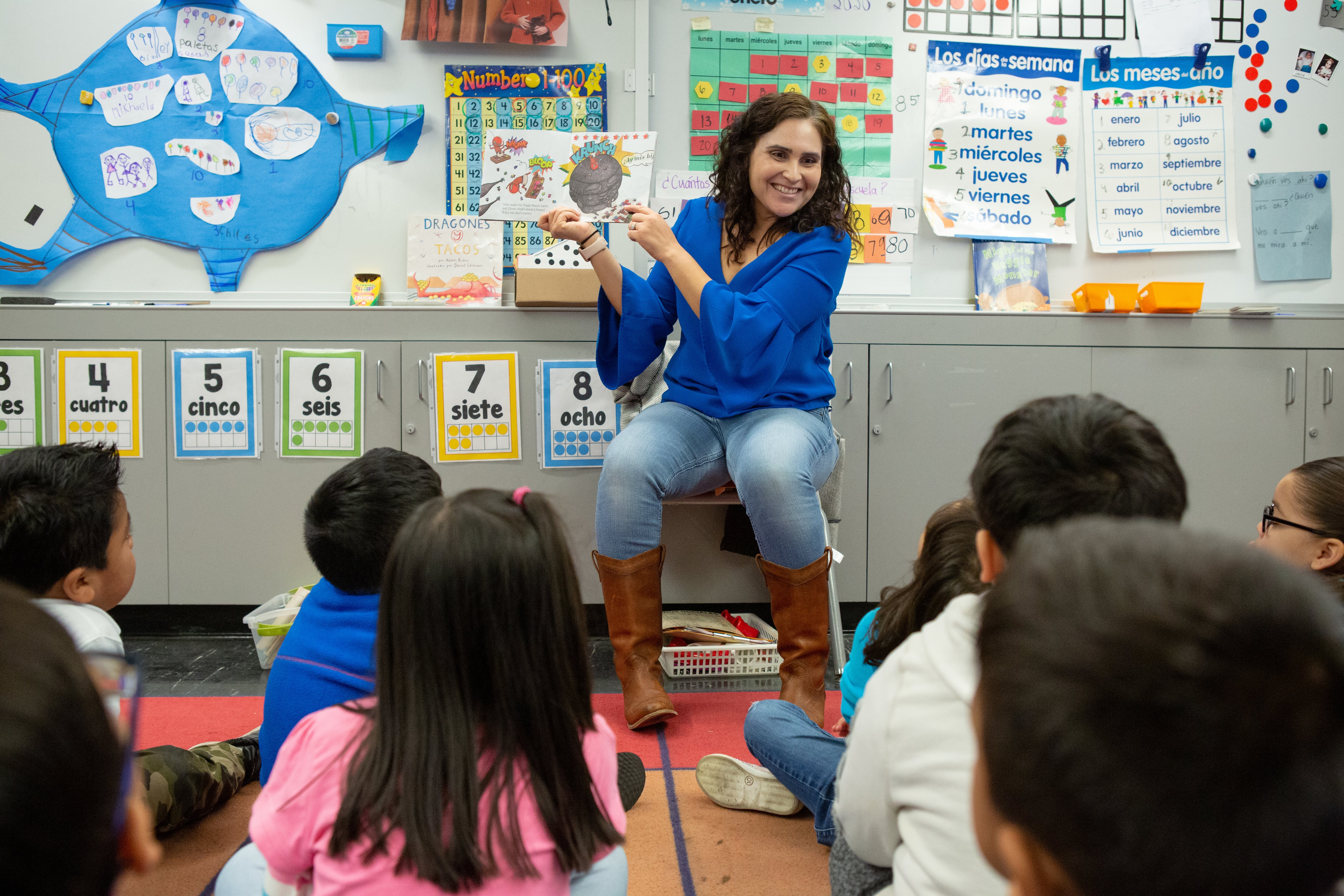More than a dozen Colorado districts flagged by the state for using unacceptable reading curriculum in early elementary grades have plans to replace those programs within the next couple years.
But plans filed by the districts earlier this month show the sense of urgency varies, with some districts making changes in the next six months and others in two to three years.
Those plans — most of which were due to the state Jan. 17 — represent the latest milestone in the state’s reading curriculum crackdown, part of a broader effort to boost reading proficiency among Colorado schoolchildren.
Until recently, the state had no across-the-board rules on what reading curriculum schools could choose and many used discredited programs, bits and pieces of multiple programs, or no program at all. A 2019 law narrowed the options, requiring reading curriculum backed by science.
Now, nearly three years later, the state’s oversight efforts are taking shape, albeit with occasional pockets of confusion, miscommunication, or COVID-related delays. One district that previously pushed back against the new rules — Aurora — has since committed to replacing state-rejected programs. Another, Boulder Valley, where hundreds of homes burned in late December, has not yet made a decision.
A district spokesman said by email Wednesday, “Essentially everything is temporarily on hold as we work to support students and staff impacted by the Marshall Fire.“
The district has until March 31 to submit its curriculum-replacement plan to the state.
The shift to better curriculum aligns well with a requirement that Colorado’s 23,000 K-3 teachers get training on the science of reading by next summer, said Melissa Colsman, associate commissioner of student learning at the Colorado Department of Education
Coming after two years of a pandemic that has set students back academically, “There’s isn’t a time in our educational history in Colorado where we’ve needed that more,” she said.
Only 39% of Colorado third-graders scored proficient on 2021 state literacy tests, down slightly from 41% in 2019, when more students took the tests.
The state began notifying districts about the need to switch from unacceptable curriculums in late October. Districts can choose from about a dozen state-approved core reading programs. If they select programs outside that list, they must prove they are scientifically or evidence-based.
Aurora’s curriculum replacement plan calls for the nine schools that use state-rejected reading programs to switch to something state-approved next school year.
The 36,000-student Adams 12 district received an extension until the end of January to submit its plan, but a district spokesman confirmed this week that the district will adopt reading curriculum from the state’s approved list. Currently, Adams 12 schools use a district-developed curriculum, which state officials say doesn’t meet the bar for being scientifically or evidence-based.
Colsman said state officials have encountered little resistance so far from districts they have contacted about replacing subpar curriculum.
Mostly, she said, the message from district leaders is, “We’re working on this. We’re working to get in compliance.”
Some districts, including Denver, Douglas County, and Durango, will switch to state-approved reading programs next school year. Other districts plan to phase in new curriculum over two to three years.
Jeffco, Colorado’s second largest district, indicated in its state plan that about half of its 111 schools will use approved reading curriculum next school year, with 25 more added the next year and the last 36 added in 2024-25. That means at some schools, today’s kindergartners won’t get instruction with an acceptable curriculum until they are in third grade.
Colsman said there is no specific deadline by which schools must switch to acceptable reading programs, but that department officials expect them to make a good-faith effort.
Another district, 4,700-student Delta County 50J, which was flagged by the state for using a state-rejected reading program at Paonia Elementary, argued that the program — commonly called Lucy Calkins — is just a small part of its core reading instruction. The district named more than a half-dozen other programs, book collections, and other reading resources that figure into instruction at the school.
Education department officials have not yet reviewed the plans that were due Jan. 17, so it’s unclear how they’ll rule in Delta County’s case.
Last fall, about 63% of Colorado’s 178 school districts were in compliance with state rules on reading curriculum. State officials said Tuesday the number is likely higher now, but department officials don’t have an up-to-date tally.
Colsman said the vast amount of data being collected on reading curriculum — 12,000 lines of data detailing core reading curriculum by grade and school — along with the fact that it’s a new process, had made the oversight process challenging.
As “a glass-half-full person,” she said, she hopes to see the needle start to move on statewide reading achievement in about two years.






